Tractors play a crucial role in various agricultural and construction activities. They are powerful machines that require regular maintenance to ensure optimal performance and longevity. One essential component that often goes unnoticed is the air filter. The air filter in a tractor performs a vital function by preventing dirt, dust, and other contaminants from entering the engine. Regular maintenance of the air filter is essential to keep the engine running smoothly and efficiently. In this article, we will explore six maintenance methods for tractor air filters to help you keep your machine in top condition.
I. Introduction
Importance of Tractor Air Filter Maintenance
Proper maintenance of the air filter is crucial for the overall performance and longevity of your tractor. The air filter plays a vital role in keeping the engine clean and protected from harmful contaminants. Neglecting air filter maintenance can lead to decreased engine performance, reduced fuel efficiency, and potential engine damage.
Role of Air Filters in Tractor Performance
Air filters are responsible for trapping dust, dirt, and other particles that can enter the engine through the air intake system. By preventing these contaminants from reaching the engine, air filters ensure cleaner combustion and protect critical engine components from wear and damage. Maintaining a clean air filter is essential for optimizing engine performance and extending the life of your tractor.


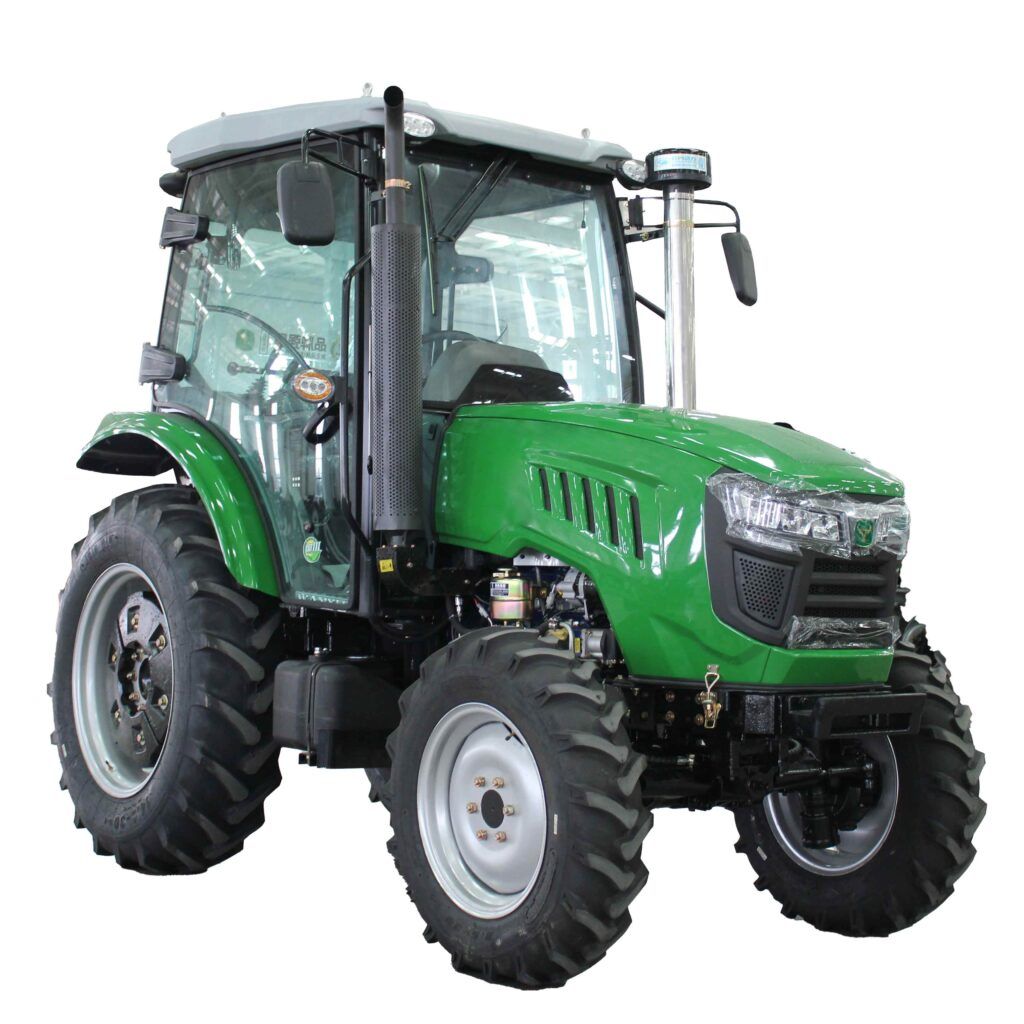
II. Understanding Tractor Air Filters
Before delving into the maintenance methods, it’s important to understand the different types of tractor air filters and how they work.
Types of Tractor Air Filters
Tractor air filters can be classified into two main types: paper-based filters and foam-based filters. Paper-based filters are commonly used and offer excellent filtration efficiency. Foam-based filters, on the other hand, are washable and reusable, providing a cost-effective option for long-term use.
How Air Filters Work
Air filters consist of a filtering medium that traps and retains contaminants while allowing clean air to pass through. The filtering medium is designed to strike a balance between filtration efficiency and airflow. As air passes through the filter, it undergoes a series of filtration stages, starting with larger particles and gradually capturing
smaller particles. The filtered air then enters the engine, ensuring clean combustion and optimal performance.
III. Signs of a Dirty Air Filter
To determine when your tractor’s air filter needs maintenance, it’s essential to recognize the signs of a dirty air filter.
Decreased Engine Performance
A clogged or dirty air filter restricts the airflow to the engine, leading to decreased engine performance. You may notice a reduction in power, sluggish acceleration, or difficulty in maintaining consistent engine speed.
Poor Fuel Efficiency
When the air filter is dirty, the engine compensates by burning more fuel to maintain the required power. This can result in poor fuel efficiency, leading to increased fuel consumption and higher operating costs.
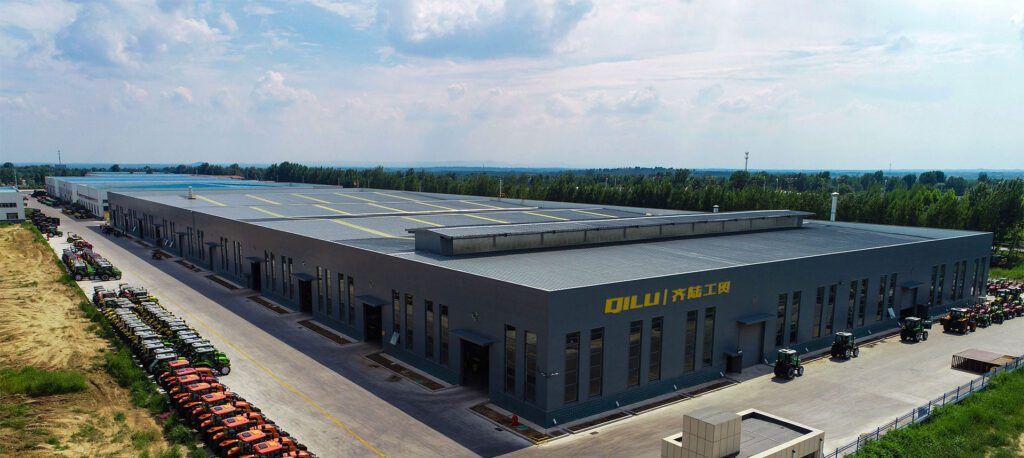
Unusual Engine Sounds
A dirty air filter can cause unusual engine sounds, such as wheezing or whistling. These noises indicate that the engine is struggling to draw in sufficient air due to the restricted airflow caused by the dirty filter.
IV. Maintenance Method 1: Regular Inspection
Regularly inspecting the air filter is a simple yet crucial maintenance step.
Importance of Inspecting the Air Filter
Inspecting the air filter allows you to assess its condition and determine whether it needs cleaning or replacement. By catching any issues early on, you can prevent potential damage to the engine and ensure optimal performance.
Steps to Visually Inspect the Air Filter
- 6 Maintenance Methods for Tractor Air FilterLocate the air filter housing, usually positioned near the engine.
- 6 Maintenance Methods for Tractor Air FilterRemove the cover or access panel to expose the air filter.
- 6 Maintenance Methods for Tractor Air FilterVisually examine the filter for dirt, dust, or damage.
- 6 Maintenance Methods for Tractor Air FilterIf the filter appears dirty or clogged, it requires cleaning or replacement.
V. Maintenance Method 2: Cleaning the Air Filter
Regular cleaning of the air filter is essential to maintain its efficiency.
Frequency of Air Filter Cleaning
The frequency of cleaning depends on operating conditions and the environment in which the tractor operates. As a general guideline, it is recommended to clean the air filter every 50 to 100 hours of operation or as specified by the manufacturer.
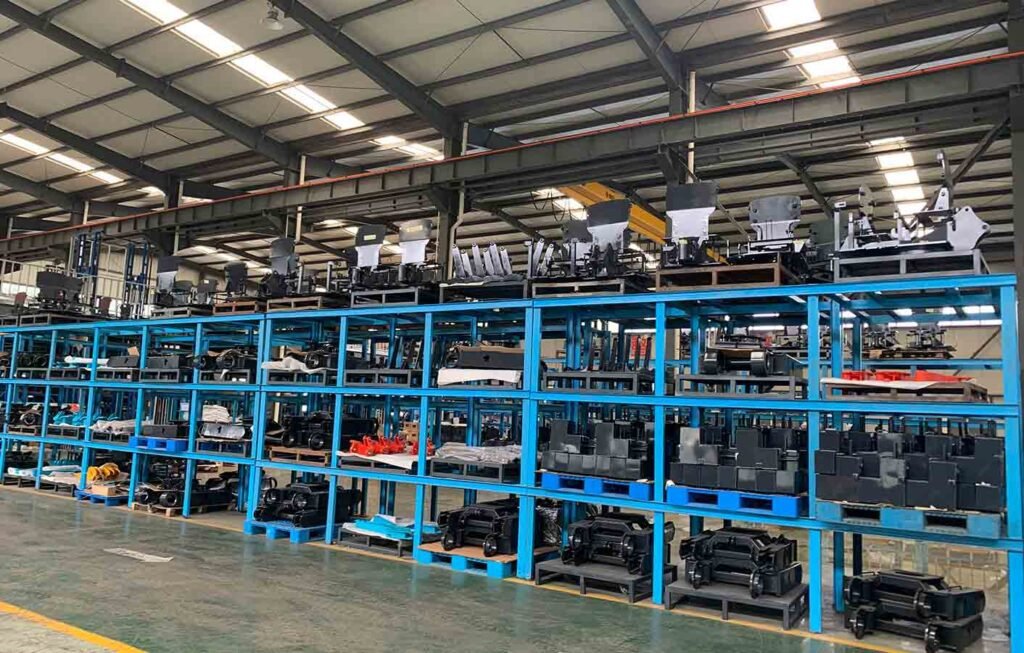
Step-by-Step Guide to Cleaning the Air Filter
- 6 Maintenance Methods for Tractor Air FilterRemove the air filter from the housing.
- 6 Maintenance Methods for Tractor Air FilterGently tap the filter against a solid surface to dislodge loose dirt and debris.
- 6 Maintenance Methods for Tractor Air FilterIf the filter is washable, rinse it with water in the opposite direction of airflow to remove stubborn dirt.
- 6 Maintenance Methods for Tractor Air FilterAllow the filter to air dry completely before reinstalling it.
VI. Maintenance Method 3: Replacement of Air Filter
In addition to regular cleaning, periodic replacement of the air filter is necessary.
When to Replace the Air Filter
If the air filter is damaged, excessively dirty, or no longer effective even after cleaning, it is time for a replacement. Additionally, follow the manufacturer’s guidelines for recommended replacement intervals.
Choosing the Right Air Filter
When replacing the air filter, ensure you select the correct filter that matches your tractor’s make and model. Genuine OEM filters or high-quality aftermarket filters are recommended for optimal performance and filtration efficiency.
VII. Maintenance Method 4: Pre-Cleaning Air Filter
Pre-cleaning the air filter can significantly extend its lifespan and improve overall maintenance.
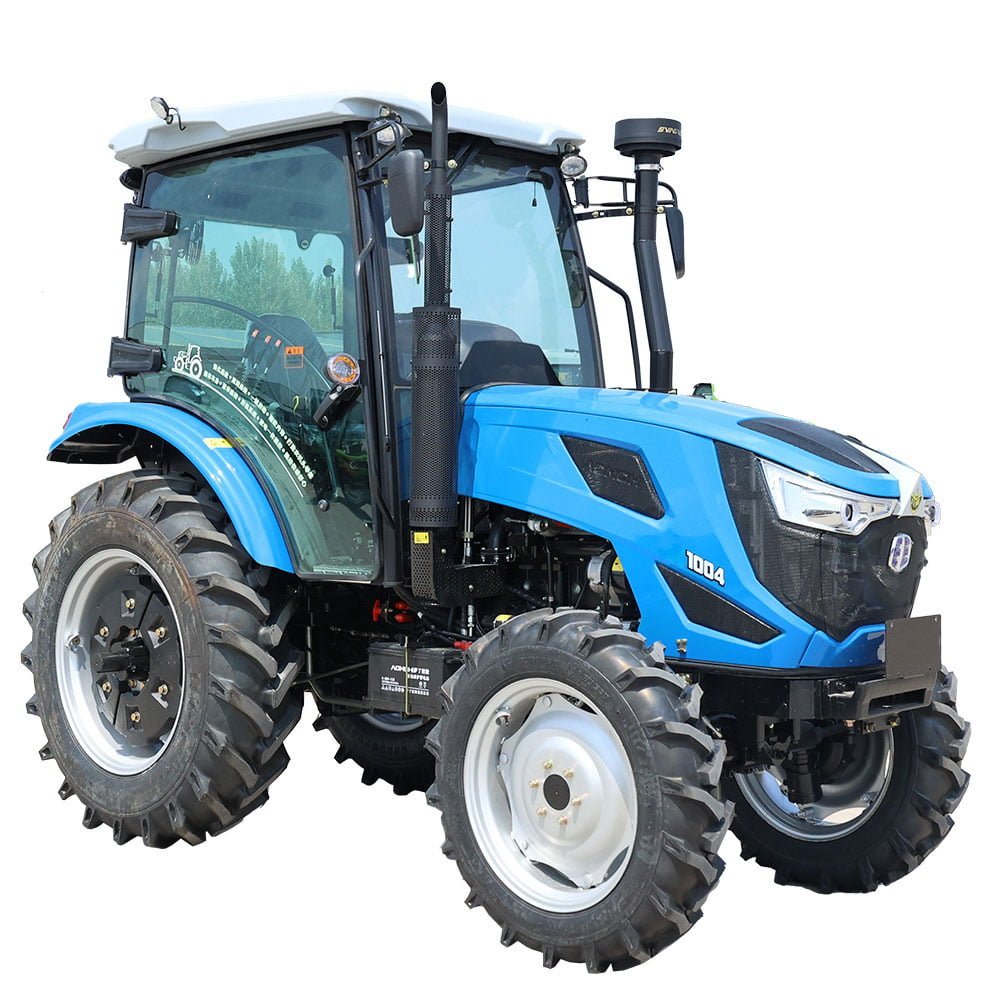

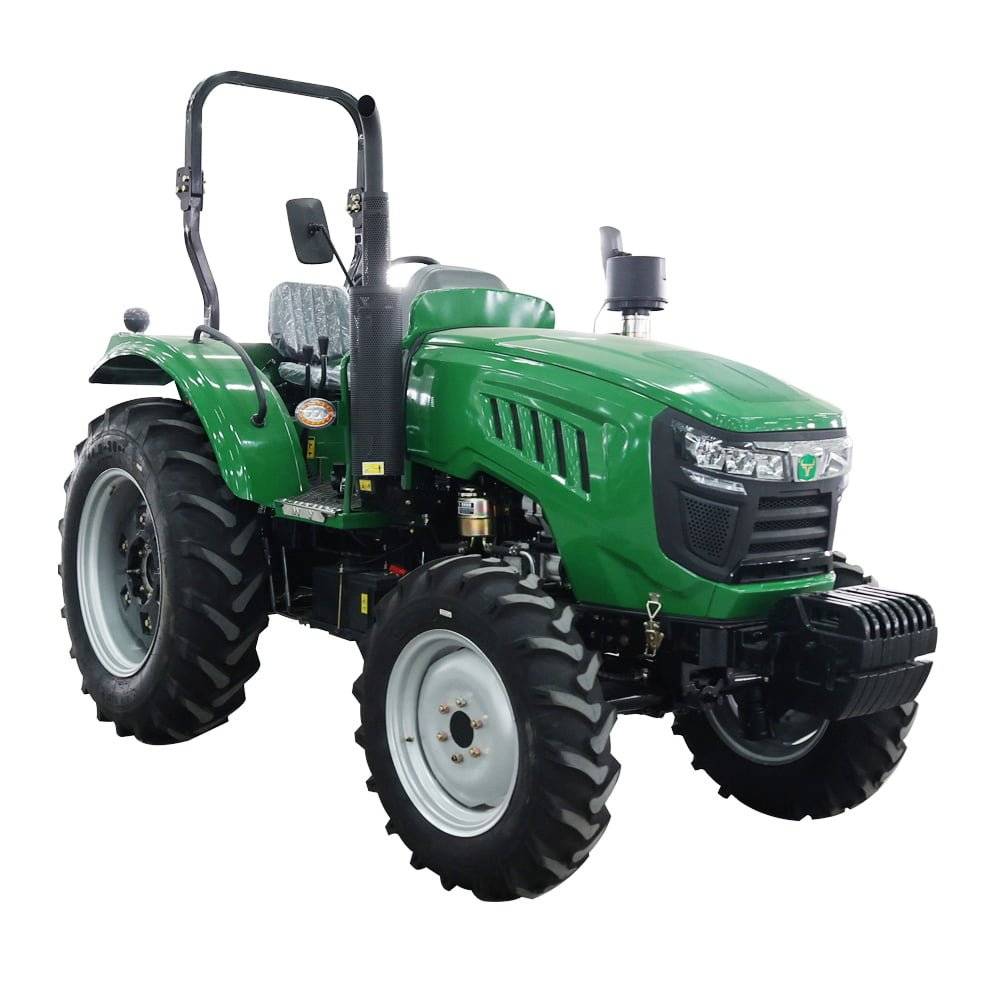
Benefits of Pre-Cleaning the Air Filter
Pre-cleaning the air filter removes larger debris and contaminants before they reach the main filter. This reduces the frequency of cleaning and extends the filter’s service life.
How to Pre-Clean the Air Filter
- Use compressed air or a soft-bristle brush to remove loose dirt and debris from the outer surface of the filter.
- Be cautious not to damage the filter during pre-cleaning.
- Perform pre-cleaning regularly, especially after operating in dusty or dirty conditions
- to ensure optimal air filter performance.
- VIII. Maintenance Method 5: Using Pre-Cleaners
- Installing pre-cleaners can further enhance the efficiency of your tractor’s air filter system.
- Understanding Pre-Cleaners
- Pre-cleaners are additional filtration devices installed before the main air filter. They are designed to remove larger contaminants, such as dust and debris, before they reach the primary filter. This helps prolong the life of the main filter and improves overall filtration efficiency.
- Installing and Maintaining Pre-Cleaners
- Select a pre-cleaner suitable for your tractor model and airflow requirements.
- Follow the manufacturer’s instructions for proper installation.
- Regularly inspect and clean the pre-cleaner according to the recommended maintenance schedule.
- IX. Maintenance Method 6: Protecting the Air Intake System
- Taking measures to protect the air intake system can prevent premature air filter contamination.
- Importance of Protecting the Air Intake System
- The air intake system is vulnerable to dirt, debris, and water ingress, which can directly affect the air filter. Protecting the air intake system safeguards the filter and helps maintain its optimal performance.
- Using Air Intake Covers and Shields
- Install air intake covers or shields to prevent direct exposure of the intake system to dirt, debris, or water.
- Ensure the covers or shields do not restrict airflow or cause overheating.
- Regularly inspect and clean the covers or shields to remove accumulated debris.
How often should I inspect my tractor’s air filter?
You should visually inspect your tractor’s air filter regularly, ideally every 50 to 100 hours of operation or as recommended by the manufacturer. This regular inspection allows you to assess the condition of the air filter and determine if it requires cleaning or replacement. By inspecting the air filter regularly, you can catch any issues early on and ensure that your tractor’s engine continues to perform optimally.
Can I clean the air filter with compressed air?
Yes, you can clean the air filter of your tractor using compressed air. Compressed air is an effective method to remove loose dirt and debris from the filter. However, it’s important to exercise caution while cleaning to avoid damaging the filter. When using compressed air, ensure that you maintain a safe distance and use gentle bursts of air to dislodge the contaminants. Be thorough in cleaning all areas of the filter and make sure to follow any specific instructions provided by the manufacturer.

What happens if I don’t maintain my tractor’s air filter?
Neglecting to maintain your tractor’s air filter can have several negative consequences. Here’s what can happen if you don’t maintain your tractor’s air filter:
- Decreased Engine Performance: A dirty or clogged air filter restricts the airflow to the engine, resulting in reduced engine performance. Your tractor may experience decreased power, sluggish acceleration, and difficulty maintaining consistent engine speed.
- Poor Fuel Efficiency: When the air filter is dirty, the engine compensates by burning more fuel to maintain the required power. This leads to poor fuel efficiency, increased fuel consumption, and higher operating costs.
- Potential Engine Damage: A neglected air filter can allow dirt, dust, and other contaminants to enter the engine. These contaminants can cause premature wear and damage to critical engine components, leading to costly repairs and reduced engine lifespan.
- Increased Maintenance Costs: Ignoring air filter maintenance can lead to additional maintenance and repair expenses. Contaminated airflow can affect other engine systems, such as the fuel system and combustion chamber, requiring more extensive repairs and maintenance.
To avoid these issues, it’s crucial to regularly clean and replace the air filter according to the manufacturer’s recommendations. By maintaining a clean and efficient air filter, you ensure optimal engine performance, fuel efficiency, and prolong the life of your tractor.
Is it necessary to replace the air filter or can I just clean it?
While regular cleaning is essential for maintaining the performance of your tractor’s air filter, there may come a time when cleaning alone is not sufficient, and replacement becomes necessary. Here’s some information to help you make the right decision:
- Cleaning the Air Filter: Cleaning the air filter removes accumulated dirt and debris, allowing for improved airflow and filtration. Regular cleaning is recommended as part of routine maintenance. However, if the air filter is excessively dirty, damaged, or no longer effective even after cleaning, it may be time to replace it.
- Filter Condition: Inspect the air filter after cleaning to assess its condition. If you notice tears, holes, or signs of deterioration, it’s a strong indication that the filter needs replacement. Filters that are worn out or damaged cannot provide effective filtration and can compromise the engine’s performance.
- Manufacturer Recommendations: Check the manufacturer’s guidelines for the recommended maintenance intervals and replacement schedule for the specific air filter model used in your tractor. Following these recommendations ensures optimal performance and longevity.
- Operating Conditions: Consider the operating conditions of your tractor. If you frequently operate in dusty or dirty environments, the air filter may accumulate contaminants more quickly, requiring more frequent replacement. Adverse conditions can affect the filter’s lifespan, making replacement necessary at shorter intervals.
In summary, regular cleaning is important, but replacement is necessary when the air filter is excessively dirty, damaged, or no longer effective. Always refer to the manufacturer’s recommendations and consult with a professional if you’re unsure about the condition of your air filter.
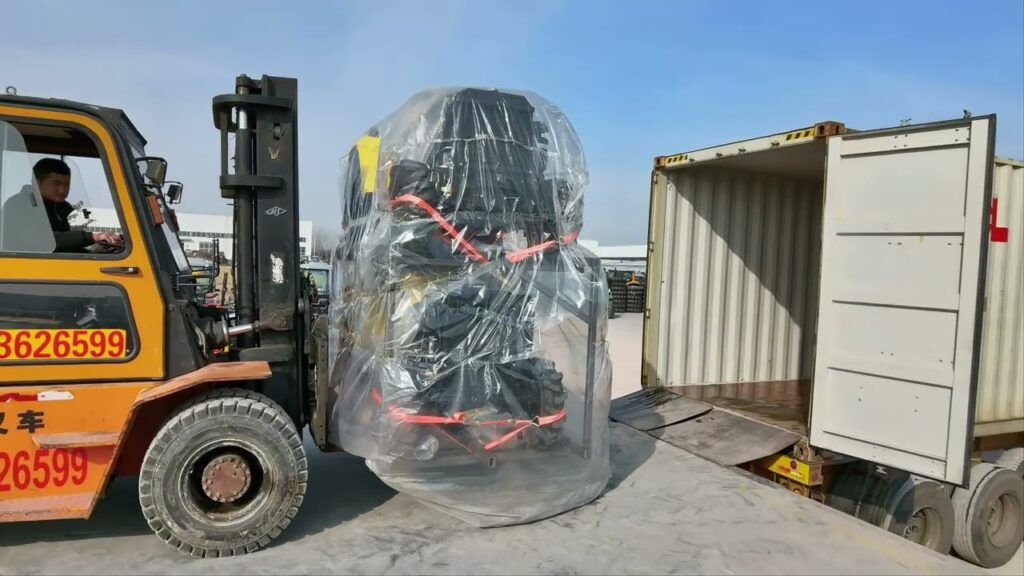
Conclusion
Proper maintenance of your tractor’s air filter is essential for optimal engine performance and longevity. By following these six maintenance methods, including regular inspection, cleaning, replacement, pre-cleaning, using pre-cleaners, and protecting the air intake system, you can ensure your tractor operates at its best. Remember to adhere to manufacturer recommendations and guidelines for specific maintenance intervals and procedures.





-1.png)